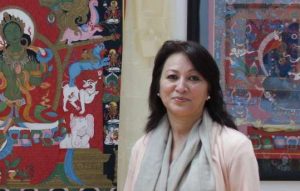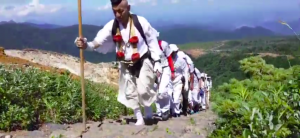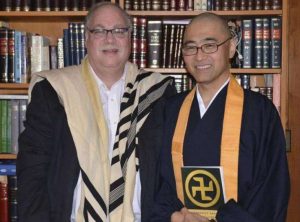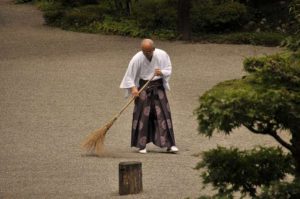
Dr. Hannah Gould and Dr. David Marco, both of the University of Melbourne in Australia, along with Dr. Anna Halafof of Deakin University, also in Melbourne, and Deb Rawlings of Flinders University in Adelaide, recently concluded a widespread study of the use of Buddhism in end-of-life care for Australians. Their work sought answers about how Buddhist ideas and practices have found their way into the decisions of Australians around dying.
“Buddhist-inspired practices, including mindfulness and compassion training, are part of Australia’s flourishing wellness industry and, for many Australians, Buddhists and Buddhism have come to play a role in not just living well but dying well, also.” Dr. Gould and Dr. Halafof wrote. “As yet there are no comprehensive statistics on the scale of Buddhist influence within Australia’s end-of-life care system, or individual people’s dying journey. This is why we have set out to study this emerging phenomenon in the Dying ‘Buddhish’ in Australia project. (The Guardian)
The project wrapped up in November 2023, with findings just beginning to be spread. In part, the project identified more than 40 end-of-life service providers offering Buddhist inspired elements such as mindfulness practices or discussion of a 49-day intermediate state that a being passes through after death. Nearly 50 individual practitioners were identified who also incorporate Buddhist practices in their work at hospitals, hospices, and funeral homes.

One of these is Karuna Hospice Services—karuna is the Sanskrit word for compassion—founded in 1992 by Venerable Pende Hawter. Today, Karuna Hospice Services is an in-home palliative and spiritual care provider. It continues its affiliation with the Tibetan Buddhist organization founded by Lama Thubten Yeshe and Lama Zopa Rinpoche. the Foundation for the Preservation of the Mahayana Tradition (FPMT).
Ven. Tsultrim, a Buddhist nun affiliated with Karuna Hospice Services, offers palliative and spiritual care, embodying the calming presence often associated with Buddhist practitioners. Ven. Tsultrim emphasizes that hospices like Karuna welcome individuals of all faiths and those without religious affiliations. The focus is not on converting individuals to Buddhism but on providing compassionate support and fostering moments of reflection.
The shift toward Buddhist-inspired end-of-life care aligns with broader societal changes in Australia, where the percentage of Christians is declining and the number of individuals identifying as having “no religion” is rising. This trend reflects a growing spiritual diversity and a shift towards spirituality outside traditional religious frameworks.
Dr. Gould and Dr. Halafof also note that: “Symbols of nature—lotus flowers, bamboo and water lilies—feature prominently in marketing for Buddhish deathcare.” This is appealing to some Australians because, “Meaningful, spiritually diverse end-of-life care and deathcare are possible. But they are not always easy to access. End-of-life care and deathcare institutions in Australia operate within a largely secular framework which recognises religious diversity but not necessarily spirituality.” (The Guardian)
Buddhist teachings and practices, such as acknowledging the impermanence of life and cultivating compassion, resonate with many Australians facing the end of life. These principles offer a framework for addressing suffering and navigating difficult emotions.
The rising prominence of Buddhist-inspired end-of-life care reflects a broader shift toward spirituality and holistic approaches to dying well in Australia. The research findings, available through the University of Melbourne website, provide promising areas of new research for scholars in Australia and around the world, along with ideas for end-of-life professionals and those facing their own deaths or those of loved ones.
See more
Dying well: why Australians are turning to ‘Buddhish’ deaths (The Guardian)
Our History (Karuna Hospice Services)
Dying ‘Buddhish’ in Australia (University of Melbourne)
Related news reports from BDG
Buddhist Monastics Oversee Blessings Ceremony after Recent US Mass Shooting
North American Buddhists to Offer Memorial Ceremony for Asian American Ancestors on 4 May
Tibetan Monk Shows No Signs of Decay 26 Days after Clinical Death
Related features from BDG
The Perfect Way to Commemorate a Death Day
Soothing the Fear of Death: Lessons from Nakula’s Mother
How to Overcome the Fear of Death
Buddhist Death Rituals: For the Living – Not for the Dead
Midwifing Death with Love – Applied Buddhism for Animal Care
Rethinking Death with Natural Burial Practices












